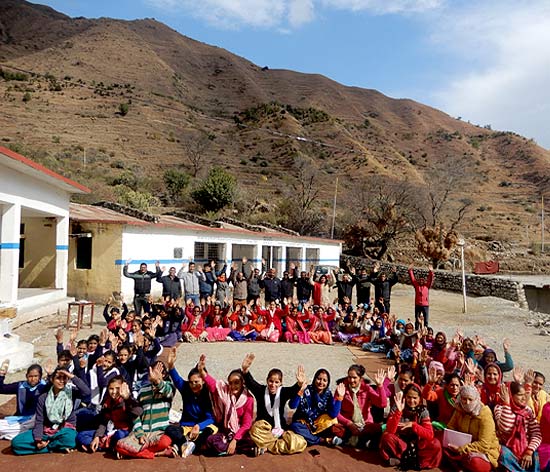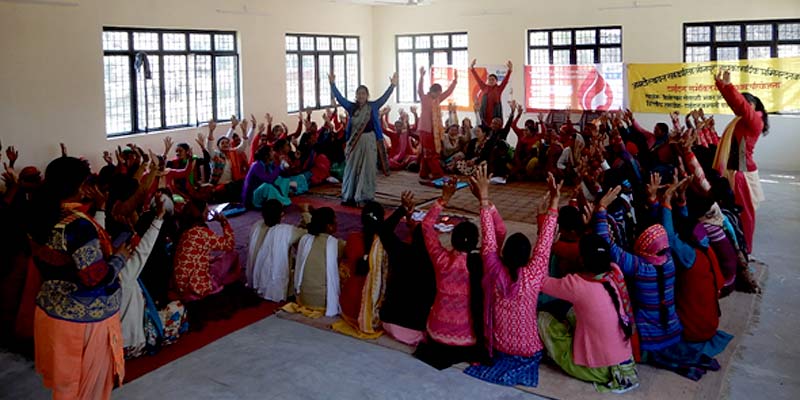
In rural Uttarakhand, conversations about female reproductive health are considered a taboo just like in other parts of the country. Many women are mortified by the mere idea of seeking medical help for their ailments. Sometimes, this has tragic consequences. Ashrafi, a resident of Chopriyalgaon village,Tehri Garhwal district, Uttarakhand, lost her close friend Rama to uterus cancer. An otherwise energetic and lively person, Ms Rama suffered from a urinary tract infection for years, but never went to a doctor due to the stigma. Ms Ashrafi says, “I feel so sad and helpless. If Rama had received the right information earlier, maybe my best friend would have survived.”
Such distressing stories are more common when it comes to menstrual health. The lack of open conversation around menstruation, a perfectly normal physical function in healthy girls and women, has led to dangerously archaic practices being followed in the region. “It is normal for menstruating girls to wash and reuse damp pieces of old cloth to manage their period. Often, women family members with different menstrual cycles share the same piece of cloth,” shares Ms Ashrafi.
As a period fellow with the Himmotthan Society, Ms Ashrafi is today able to raise awareness and change people’s attitudes towards menstrual hygiene. Under its Menstrual Hygiene Management (MHM) initiative, Himmotthan, an associate organisation of the Tata Trusts, provides a platform to share information, discuss safe menstrual health products, and change social attitudes and behaviours related to menstruation.

Himotthan’s team aims to empower women and adolescent girls through networking, capacity building, and by training and hand-holding like-minded women around them. They also impart knowledge about menstrual health among women and men, try to change behaviours, socio-cultural beliefs and taboos, and impart awareness among families, communities and schools across Uttarakhand.
Period fellows like Ms Ashrafi frequently survey different villages and form self-help groups of women for the MHM training session at regular intervals. Sometimes, they encounter shocking practices that betray the widespread ignorance about the consequences of neglecting menstrual health.
For instance, many menstruating girls and women use the dirtiest piece of cloth available, because to many of them, menstruation is synonymous with dirt. The cloth pieces are reused for a year or more, even if they have turned as hard as stone. This problem is exacerbated by the fact that some young girls or working women have kept aside only one pair of undergarments, which they use throughout their periods.
Many of these mediaeval practices are rooted in the incorrect belief that women become ‘impure’ during their periods. Many girls and women hide their menstrual cloth and undergarments from their male relatives, and never dry them directly under the sun after washing. They are also often denied soap for washing their undergarments and cloth pads. Many menstruating women even put off bathing until after their periods, as the water of streams or springs in the hills is believed to be too sacred for such purposes.
Ms Ashrafi draws from the tragic experience of losing her friend to sensitise others. “Most village women suffer from rashes, pain or irritation in the vagina, but they never approach doctors or ASHA workers in their area because they believe that it is a common problem, and doesn’t need any treatment” she says.
The training sessions conducted by Himmotthan are now making a dent in these antiquated beliefs, in the community. After attending the sessions, women are better aware of the importance of washing and sun-drying the cloth used for managing menstruation, before and after use. They also learn that maintaining hygiene and sanitation during their periods is as important as eating healthy food. “Safe MHM practices have helped the community and brought better health to our village,” says Ms Ashrafi.
